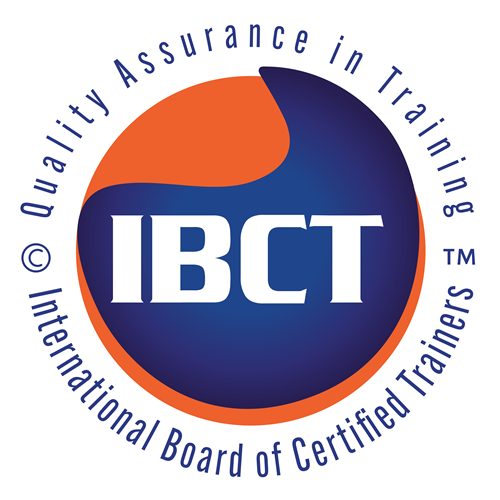IBCT Code of Ethics and Professional Conduct
The Board enforces the Code by receiving and investigating all complaints of violations then taking a disciplinary action if needed.Why Code of Ethics and Conduct?
our well-articulated code of conduct clarifies IBCT’s mission, values and principles, linking them with standards of professional conduct. The code articulates the values that IBCT wishes to foster in its certified trainers and HRD professionals and, in doing so, defines desired behavior. As a result, written codes of conduct and ethics can become benchmarks against which individual and organizational performance can be measured.
Additionally, our code is a central guide and reference for IBCT Certifies trainers to support their day-to-day decision making. A code encourages discussions of ethics and compliance, empowering trainers to handle ethical dilemmas they encounter in everyday work/training. It can also serve as a valuable reference, helping trainers locate relevant documents, services and other resources related to ethics within their organizations.
THE CODE
Preamble
Purposes of The Code
Code of Ethics
Members and IBCT certified trainers must:
- Act with integrity, competence, diligence, respect, and in an ethical manner with the public, clients, prospective clients, trainees, clients’ employees, colleagues in the profession, and other participants in the global HRD markets.
- Place the integrity of the profession and the interests of clients above their own personal interests.
- Use reasonable care and exercise independent professional judgment when conducting training evaluation, providing recommendations, taking HRD actions, and engaging in other professional activities.
- Practice and encourage others to practice in a professional and ethical manner that will reflect credit on themselves and the profession.
- Promote the integrity of IBCT, and uphold the IBCT rules governing IBCT Train-the-Trainer programs.
- Maintain and improve their professional competence and strive to maintain and improve the competence of their clients according to IBCT standards.
Standards of Professional Conduct
I. PROFESSIONALISM
B. Professional Attitude. The reliance of managers of private and public institutions onto the advice of trainers imposes an obligation to maintain high standards of integrity and competence. In recognition of the public interest and their obligation to the profession, members & trainers must:
- Exercise independence in thought and action.
- Hold the affairs of their clients in strict confidence.
- Continuously strive to improve their professional skills.
- Advance professional standards of training.
- Treat similarly situated people similarly, while taking account of human, cultural, and other differences.
- Uphold the honor and dignity of the profession.
- Maintain the IBCT standards of personal conduct.
- Promote fair, safe and sustainable learning environment.
- Strive to achieve the balance between interest as a trainer and that of the client.
C. Independence and Objectivity. Members and trainers must maintain independence and objectivity in their professional activities. They must not offer, solicit, or accept any gift, benefit, compensation, or consideration that reasonably could be expected to compromise their own or another’s independence and objectivity.
D. Misinterpretation. Members and trainers must not knowingly make any misrepresentations relating to training & HRD, recommendations, actions, or other professional activities.
E. Misconduct. Members and trainers must not engage in any professional conduct involving dishonesty, fraud, or deceit or commit any act that reflects adversely on their professional reputation, integrity, or competence.
II. CONFLICTS OF INTEREST
A. Disclosure of Conflicts. Members and trainers must make full and fair disclosure of all matters that could reasonably be expected to impair their independence and objectivity or interfere with respective duties to their clients, prospective clients, and trainees. They must ensure that such disclosures are prominent, are delivered in plain language, and communicate the relevant information effectively.
B. Referral Fees. Members and trainers must disclose to IBCT and their clients, and prospective clients, as appropriate, any compensation, consideration, or benefit received from, or paid to, others for the recommendation of IBCT services.
III. REPONSIBILITIES AS AN IBCT TRAINER
B. Reference to IBCT foundation, the IBCT designation, and the IBCT Training Programs. When referring to IBCT, IBCT membership, the IBCT designation, or candidacy in any IBCT Programs, members and trainers must not misrepresent or exaggerate the meaning or implications of membership in IBCT foundation, holding the IBCT designation, or candidacy in the IBCT Program. They must show the ultimate respect to all IBCT-related issues as well.




